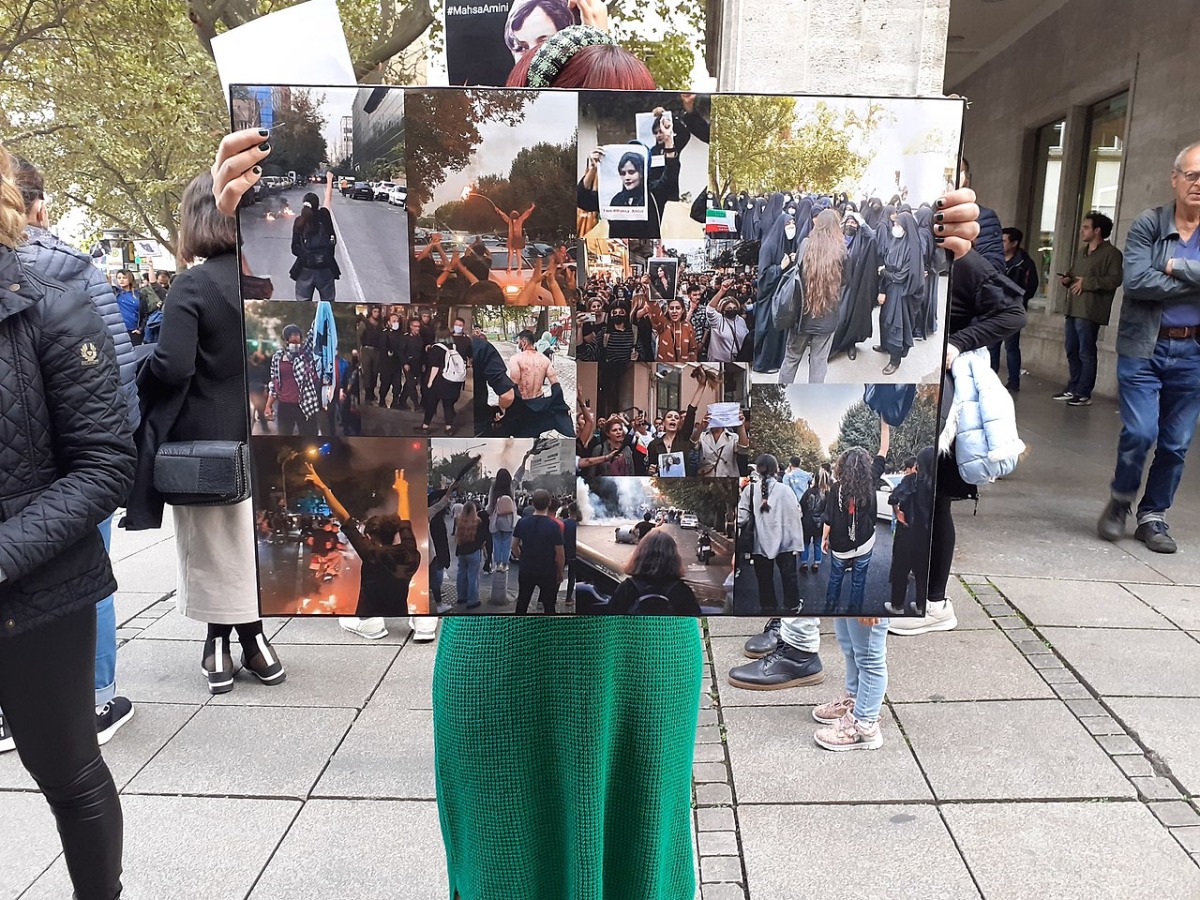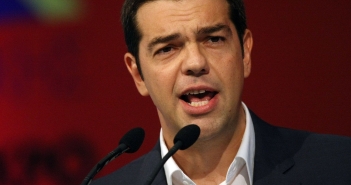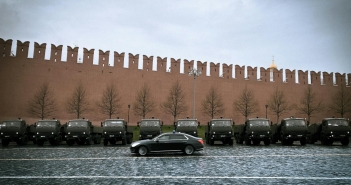Maryam was just a child when one day her parents left her at home alone and took her younger brother to the clinic. They refused to take Maryam, although she insisted.
When they returned home, Maryam’s brother was in a white skirt in his father’s arms. For some reason they were very happy and congratulated her brother. “You have become a man,” they said. “Well done”. Maryam’s brother was crying, and they went on and on congratulating him on something.
Maryam wanted to hug her brother and calm him down, but when she approached him, Maryam’s mother immediately pulled her away and said: “What are you doing? Can’t you see he’s in pain? Don’t disturb him until he recovers.”
Maryam went to her room and plugged her ears so as not to hear his crying. A little later, the whole family – aunts and uncles – came to their house with a lot of gifts and food. Everyone was celebrating and dancing. Maryam’s father bought to her brother a toy car that he promised my brother a long time ago.
Maryam cautiously asked her mother, “Is it my brother’s birthday today?”
Her mother answered sharply “no” and left. Maryam was left with many questions in her head: why was everyone rejoicing and congratulating her brother; why was he in a skirt; why was it impossible to approach him? Everyone just said that he had become a man. From that day on, Maryam understood what circumcision meant.
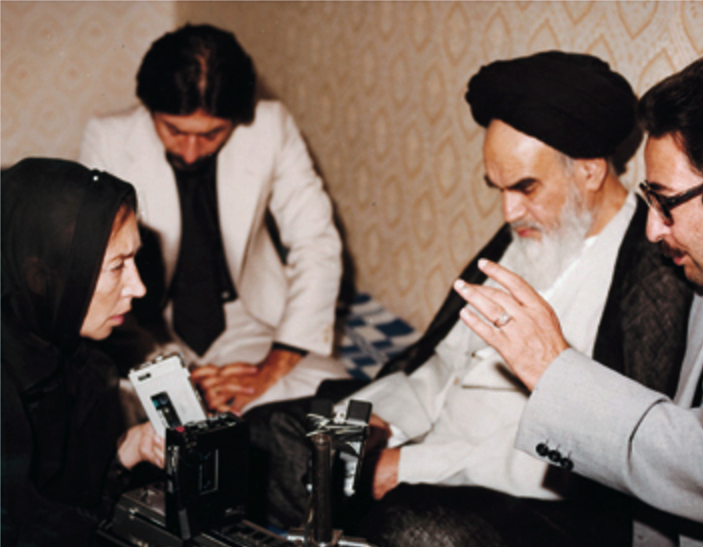
Ayatollah Ruhollah Khomeini.
Shameless
Becoming a woman for Maryam turned into a disaster. Maryam still cries when she remembers the first day of her period. That day was the worst in her life.
One day, when she was returning home from school, she felt severe pain in her stomach. Maryam writhed in pain. Having somehow made it home, she went to the toilet and saw blood on her underwear. She was shaking with fear, and for some reason she felt very ashamed. Overcoming fear and embarrassment, she called her mother. Suddenly, at the moment when Maryam, trembling with fear, was talking about the blood on her underwear, her mother hit her hard in the face, uttering only the word “behaya”.
The Persian word “behaya” (بی حیا) is used for those who never listen to the rules of the female role. Usually people use the word “behaya” when describing someone’s behaviour as shameless.
Maryam was shocked and started to cry: “I felt that all my pride and my personality was crushed, that the world had come crashing down on me. I thought, what did I do wrong?”
Her mother took her hand, “Calm down, don’t cry, it’s a family tradition to follow when a girl first reports her period.” She added that the slap in the face would stop the girl from being shameless and rebellious in future, and would help her to remain worthy and innocent.
Her mother began whispering to Maryam what it means to become a woman, and that becoming a woman should be kept secret between women. She explained different ways to hide this secret, and showed how and where to hide the menstrual pad before and after using it.
Moreover, sometimes, according to the assurances of the mother, the pad must be washed so that none of the men sees menstrual blood. The mother said that when Maryam had her period, the brothers and father should know nothing about it.
Maryam should not behave in such a way that someone understands that she is on her period. From that day on, she learned to hide her pain for a few days each month so that no one would notice that she was on her period.
That day there were no gifts, no parties, no congratulations on Maryam becoming a woman. Even that purple toy horse, which Maryam had wanted for many years, and which her parents had promised, was never presented to her.
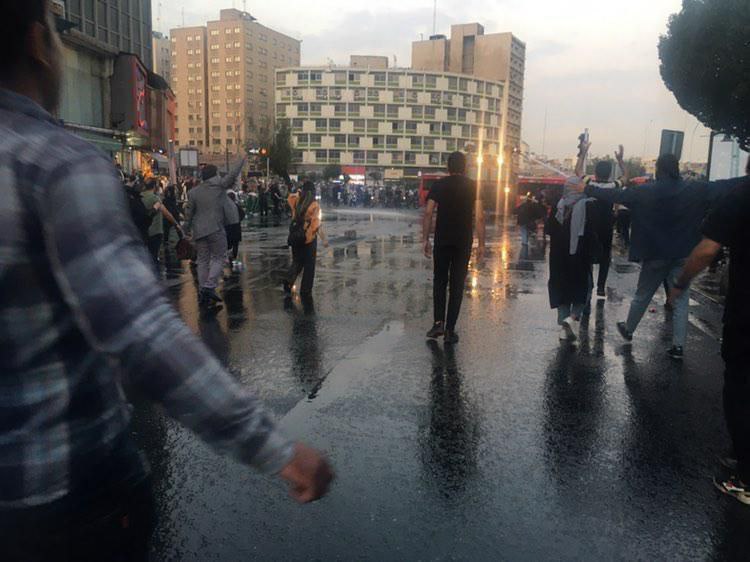
Iranian protestors on the Keshavrz Boulvard, September, 2022.
I don’t care even if I get fired or killed
While Maryam was growing up she had access to the Internet, and at the same time the path to the fight. Masih Alinejad’s “White Wednesdays” campaign on Instagram first showed her this path in 2014. Many women, including Maryam, posted photos without a veil with hashtags.
Since 2015, Maryam has ventured not to wear a veil: “It was much more difficult not to wear a veil in Tehran than in other regions of Iran. I was arrested every week by the morality police in Tehran. I was molested, I was constantly called the most terrible words every day by both the police and religious people. But I didn’t give up.”
In March 2018, Maryam left Iran. She now lives in Georgia and works for World Vision and UNHCR as a community group facilitator. Now Maryam Sharifi has become a well-known human rights activist. She is one of those who tirelessly disseminate information about all the crimes of the Iranian regime abroad.
Feminism and feminist activities are against the Islamic laws in Iran. Therefore, there is no organization or feminist community in Iran. Some large cities have boarding houses or women’s shelters, but these are under government control.
Maryam considers the elimination of taboos against women and informing women about their rights as the first and main priority in her activism:
“Unfortunately, the number of women who do not even know or do not want their basic human rights in Iran is greater than the number of feminists or women who are aware of their rights. Many women have accepted the traditional, unequal role of mother or daughter in their family, and they believe in all the laws of Islam, the laws of misogyny.”
Before agreeing to give an interview, Maryam asked not to censor her words: “I am not afraid of anything and do everything for the freedom of women. People around me are always telling me, “Don’t say things like that. This is dangerous. Your life may be in danger or even fired from your job,” but I don’t care if I get fired or killed. I don’t care, I just want to have a better society for future generations.”
We are silenced when we start talking about Islam
According to Maryam, Islam and the politics of Islamic countries in the world are resisting the struggle of women in the Middle East with all their might and using the media around the world for this, creating a positive image of Islam:
“Islam is dangerous for the whole world, but people in the West think that Islam only affects the Middle East and has nothing to do with them. They are even afraid of the reaction of Islamic fanatics. They go to compromise. You can see for yourself in Europe, in the West and all over the world, Muslims promote Islam and violence. The media and international forces are silent and give them space. But when we criticize Islam, we are silenced or censored.”
Maryam has a Muslim colleague who is a facilitator for a community vision group. At one of the meetings, Maryam recalls, her colleague publicly defended patriarchy, where discrimination was discussed, and said that men should have more rights and power because they are the heads of the family.
“She even told me once that if she saw a same-gender couple expressing their love in front of her, she would want to kill them. I wonder why this woman should work for a human rights organization? They want to show that a Muslim woman in a veil can be successful, but they do not show what dangerous thoughts this woman has and what dangerous children she can raise.”
Maryam herself is fundamentally against wearing a veil. She is convinced that it has become a symbol of control over women, imposed around the world for millennia to control the body and role of women.
Aged 32 Doaa Baker's decision to remove the #hijab caused a humongous stir. She courts similar public opprobrium over a decision she made during this pandemic.https://t.co/hXopSgHFBR@broadsheet_ie @indepdubnrth @DLangwallner @liamherrick @ICCLtweet @RositaSweetman
— CassandraVoices (@VoicesCassandra) April 16, 2021
I’m in this fucking chador
A few days before the murder of Mahsa Zhina Amini for improperly wearing a hijab by the morality police in Iran, Dilnaz, a student from Saqqez, wrote: “It’s so hot here, at least 30 degrees, and I’m in a fucking chador.”
At the university, Dilnaz, like all students, is required to wear a chador. But as soon as the opportunity is given, Dilnaz immediately rips off her chador. She posts photos on Instagram in a traditional Kurdish dress. “In Kurdish culture, there is no obligatory wearing of the hijab or veil. What people know about Iran and its laws against women is the ideology of the Islamic government, not the culture of the peoples living here,” Dilnaz explained.
Dilnaz was raised by a Kurdish grandmother, who passed on many Kurdish traditions to Dilnaz: “When I got my first period, my grandmother told me to anoint my cheeks with menstrual blood so that, as my grandmother said, my cheeks would always be red.”
Now Dilnaz reads with gusto all the news about Rojava in northeastern Syria, where the Kurdish liberation movement has proclaimed a women’s revolution, and consoles herself with the hope that one day she will definitely come to Rojava.
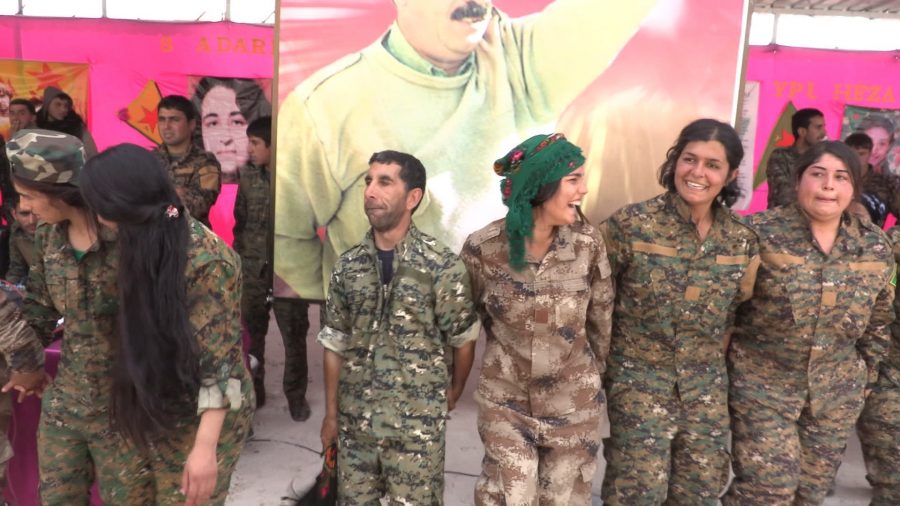
Rojava. Image: Alexis Daloumis
I’m scared to be here
Dilnaz is studying under a contract at the university as an elementary school teacher. During her studies, the state pays her a scholarship, and after graduation, Dilnaz will have to work for several years in Iran.
If Dilnaz violated this contract and refused to work after training, she would have to pay compensation of approximately eight thousand dollars, a huge sum for her and her family. Moreover, she will have to leave such an amount as a pledge if she wants to leave the country even for a short time. Those are the terms of the contract.
In addition, Iranian universities have a quota system that limits the number of female students. Many of Dilnaz’s entourage say that she was lucky. But Dilnaz dreams of leaving: “I’m scared to be here. I don’t see any happy future for myself in this country.”
Dilnaz has an older sister. Her parents forced her to marry a man who, a few days after the wedding, began to beat her. “My parents were very secular people throughout my childhood. But then my father lost his job, our financial situation worsened, and for some reason, after that, my parents suddenly became very religious. After that, they ruined my sister’s life, and I’m afraid the same thing could happen to me. And no one and nothing will save me,” she said.
Recently, there have been at least three events that directly related to the status of women in Iran. Shortly before the murder of Mahsa Zhina Amini, in the city of Marivan a girl jumped out of a window in an attempt to escape from an attempted rape.
Protests began in Marivan demanding that the rapist be punished. A little later a death sentence was passed against two LGBT activists – both women. There was also news about the ban on women in commercials in Iran, which was publicised in some foreign media.
Women cannot leave Iran without the permission of their father or husband. This is one of many laws restricting the rights of women in Iran.
The are banned from working in ninety-one professions: they cannot be judges, lawyers, geologists, archaeologists.
Women are also not allowed to play sports, sing and dance in the presence of men. This is considered “avret” – that is, as Dilnaz explains, something shameful.
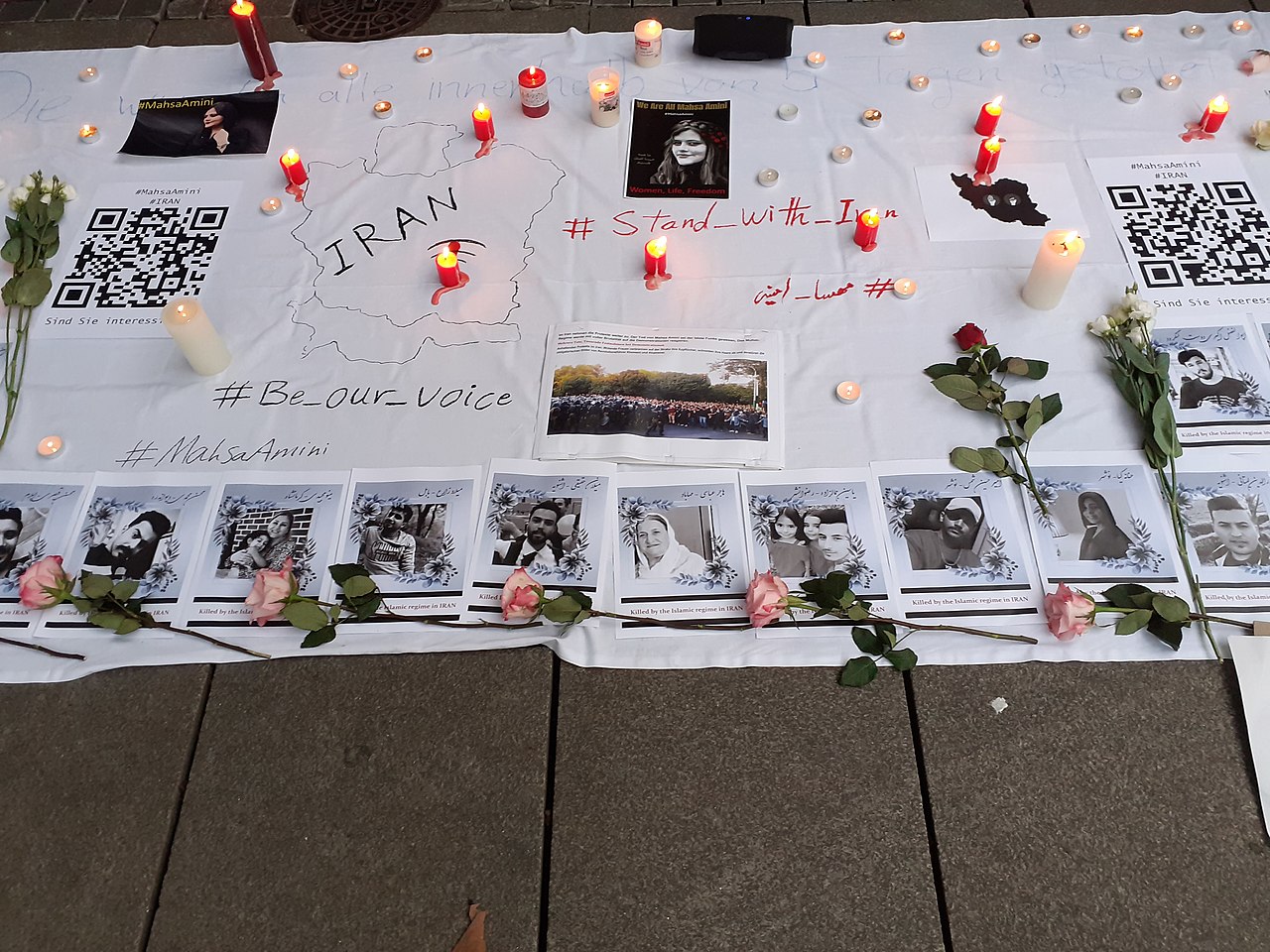
Commemoration of Iranians killed in anti Regime protests. Mahsa Amini Protests in Stuttgart, Germany.
I can stand up for myself
When the protest movement swept across Iran, Dilnaz wrote: “Don’t worry about me, I’m a Kurdish girl, I can stand up for myself.” She went out to protest every day, and when she returned home, she shared her impressions of what was happening with me: “I was very scared. I have never seen such a lot of police brutality and so many injured people.”
Dilnaz left her phone at home so that if the police caught her they would not have access to the contacts of her friends, protest news sources, and to her instagram account in which there are photos of her and her friends without veils.
Women have become a symbol of the current protests in Iran, and not only the deceased Mahsa Zhina Amini. Women in Iran and around the world have taken to social media to post videos of themselves ripping off their veil, burning them and cutting off their hair in protest.
One of the protesters, Hadis Najafi, who tied her hair into a bun before clashes with police, was shot dead. One of the most common protest slogans was “Woman, Life, Freedom”, which originally emerged from the Kurdish liberation movement in Rojava, northeast Syria.
In Iran itself protests went on for over eleven days in some cities. As she prepared to protest once more, Dilnaz said: “I am sure that these protests will not be easily suppressed. I believe we can make a difference.”
Then the Internet was turned off all over Iran, and when it was turned back on Dilnaz did not appear online anymore.
At this stage, according to various sources, more than 76 people have died in the protests in Iran, thousands have been injured, and more than 1200 have been arrested. There are even children among the dead.
Feature Image: Mahsa Amini Protests in Stuttgart, Germany.
Follow Liza Shishko on Instagram.

